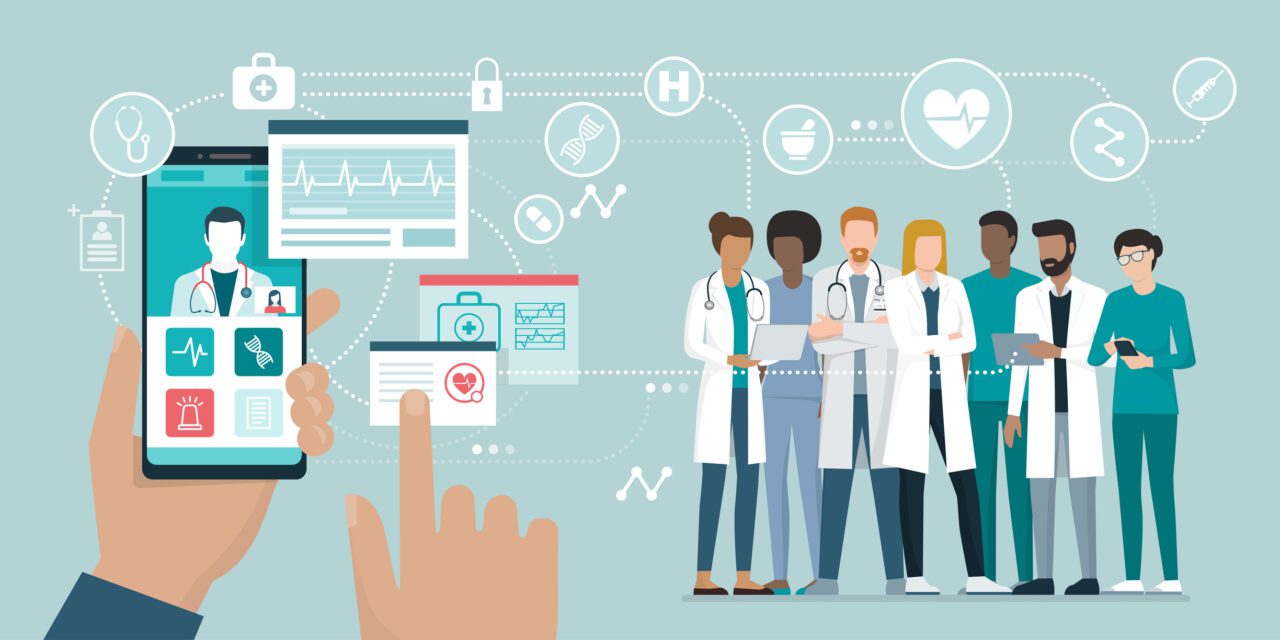How Health Information Professionals are Transforming Healthcare

If you’ve ever checked test results from your smartphone or seen a doctor taking notes on a tablet during an appointment, you know paper health records are a thing of the past. Healthcare went digital in a big way in response to the COVID-19 pandemic. Physicians saw their telehealth visits increase exponentially seemingly overnight. Many essential functions, including billing and appointment scheduling, shifted to digital solutions to better accommodate patients and healthcare employees working from home. All of this created a growing demand for health information professionals who could make these systems work safely and efficiently.
Digital health transformation has shown to have many benefits for patients and providers alike, including improved access to healthcare, improved quality of care, lower cost of care, reduced inefficiencies and more personalized care options. Yet, to achieve these outcomes, healthcare providers must hire health information professionals with the skills needed to implement, maintain and optimize these tools.
What Do Health Information Professionals Do?
According to the The American Health Information Management Association (AHIMA), “Health information is the data related to a person’s medical history, including symptoms, diagnoses, procedures, and outcomes.” As healthcare providers adopt digital systems, more and more of this vital information is being collected on a regular basis. How will the healthcare system be able to keep track of all of these records and ensure they remain safe and accessible?
That’s where health information (HI) professionals come in.
These individuals are trained on the latest technology applications, and can act as a bridge linking clinicians, patients, administrators, information technology professionals and more to the key data they need to improve care and protect sensitive information. As AHIMA puts it, “HI professionals care for patients by caring for their medical data and are responsible for the quality, integrity, security, and protection of patients’ health information.”
Why Pursue a Career in Health Information?
As providers, clinicians and patients have become increasingly comfortable with and reliant on digital solutions in healthcare, their adoption and usage will only continue to expand. With that expansion comes the need for talk equipped to take on this challenge. According to the Bureau of Labor Statistics (BLS), medical records and health information technicians are on track to remain some of the fastest growing occupations in the United States, with an anticipated growth of 32 percent between 2020-2030.
There are a variety of job titles to consider in the health information management career path, each requiring varying levels of education, certification and experience. There’s the option to go down the medical records management route in order to become what’s known as a HIM clerk or technician. Others take this opportunity as an educational stepping stone, using the experience to open doors for leadership roles within the coding and revenue cycle fields. Last but not least, some individuals commit to the information technology side of the business, becoming analysts and working to optimize the electronic medical records (EMR) systems.
The Future is Digital
One thing that the COVID-19 pandemic has taught us is that digital healthcare is here to stay. While some innovations that have been around for years have vastly expanded, including telehealth visits and electronic health records, there is unlimited potential for new solutions designed to improve care across the board. To get there, healthcare providers are in need of health information professionals ready to take on the challenges of tomorrow’s healthcare environment.
Are you interested in learning more about the future of healthcare and how Medix is helping to build the top teams ready to take on tomorrow’s challenges? Talk to our team today.

Work with a Trusted Healthcare & Life Sciences Staffing Partner
Connect with Medix to get the expertise and resources you need to succeed.
